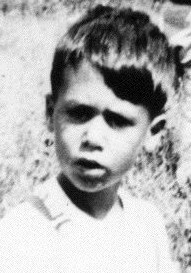In the nearly uniform grid of that part of Brooklyn, the intersection of 67th Street and 18th Avenue is a minor anomaly because the street doesn’t go straight across the avenue. It continues west of it at a slight angle a few yards further to the south. Possibly because of that Thomas Wolfe used it in “Only the Dead Know Brooklyn.” Before 1952 we lived on that deviant block west of the avenue.
One of my mother’s best friends, Miriam, lived in the same apartment building, with her husband, Harry, and their two sons. Miriam, a certified “dame,” smoked and had a cynical, wise-cracking style of talk. Harry was a newspaper reporter. He worked for the
Brooklyn Eagle, and later the
Daily News. He investigated things, wrote about them, and his stories were printed. He got leads from sources. He seemed to know the city inside out, and he knew all the other reporters. He was sometimes accompanied by a photographer.
Once he was doing a story on juvenile delinquency and decided he needed pictures of delinquent children: children breaking laws, children sneering at their parents’ values, children doing cruel things to each other. So he collected a small group of kids from our block, including me, and took us to an alley in back of our apartment building. We were very young. I may have been eight. I remember being asked to hold a board with a nail sticking out of it over the head of a little girl pretending to shield herself with her arm.
After we moved, I didn’t see Harry or Miriam very often, though my parents kept in touch. Technically, I was still a Yankee fan. Life was good for the Yankees. For the Dodgers, things were never again as good as they were in 1955, though they were still very good. Nineteen-fifty-seven was their last year in Brooklyn. Then they moved to LA.
In the spring of 1957, a few months after the Suez Crisis, an Israeli soccer team toured the United States, probably to help beef up support for Israel. They were scheduled to play an all-star American team in Ebbets Field. According to an item about the game that I found on the web, the Israeli players were asked which famous Americans they’d like to meet. Their reply was, “As athletes, we’d like to meet the Brooklyn Dodgers, as men, Marilyn Monroe.” And so it was arranged that Marilyn would appear and kick off the first ball. As a perk, Harry got extra passes, which he gave to me and my father.
On May 12, 1957, I was in Ebbets Field, probably for the last time. My father and I sat in the press box in the first row of the upper deck along the third base line. I knew nothing about soccer so it’s not surprising that I don’t remember the game, or even if we stayed to see all of it. Sammy Davis Jr. was supposed to appear too, but I don’t remember him either. I do remember Marilyn. She may have been wearing a pink dress. The dress may have had a scoop neck. And she may have worn pink high heels. In any event, she took off one of her shoes, then kicked the ball, which squibbed away crookedly. She seemed pleased. Then she sat on top of the back seat of a convertible and was driven around the field close to the stands. I looked over the railing directly down at her when she passed below our seats.
Long afterward, in 1994, I was in Brooklyn again and walked down 18th Avenue back to 67th Street. I passed an Italian bakery that had been bombed in some ridiculous mob dispute, then the eighteenth-century church with the “tallest flagpole in Brooklyn,” made from an old ship’s mast. Then the site of a house in which George Washington spent a night.
Activity on the avenue became increasingly lively. Then there were crowds. Cars circled blocks filled with cheering passengers. It was a sort of parade with improvised floats in the colors of the Italian flag. At that moment, Italy was playing Brazil in the World Cup final. I took pictures of the animated scene as well as of the apartment building I lived in when I was a child.
I felt like a tourist and thought the same thoughts I would have thought as a tourist in any foreign country, “Why am I here? What am I supposed to be getting out of this? How do I do that?”
In a game scoreless through extra time, Brazil beat Italy 3-2 in a penalty shootout.
(End of “Major League Baseball.")



